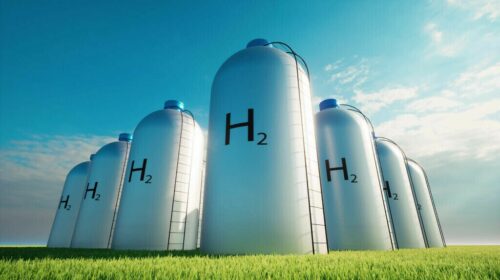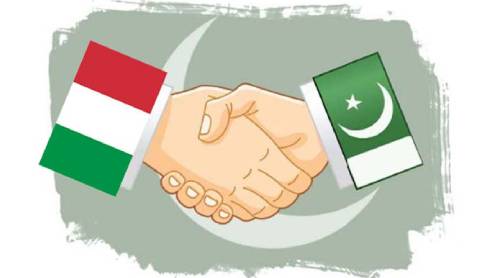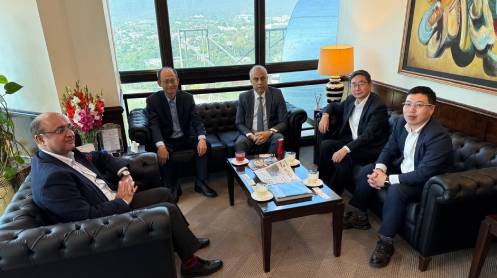Ambassador of Federal Republic of Germany Alfred Grannas, while referring to the energy crises being faced by Pakistan, has stated that Pakistan can become the “next Saudi Arabia” not in terms of oil but in terms of ‘green energy’ as the country has huge potential for producing substantial quantities of ‘green hydrogen’ which can even be exported to Germany.
“We are producing some of it but not enough, so the green hydrogen is an area where there is a huge potential for exports to Germany. German companies are interested in investing in Pakistan for production of green hydrogen and they can bring in necessary technology for combining solar, hydro, wind and some parts of traditional energy to have stable energy generation and provision,” he said while exchanging views at a meeting of the Karachi Chamber of Commerce and Industry (KCCI).
He was of the opinion that the investment conditions in Pakistan were currently going back and forth which need attention; although the German investors want to invest here but they will only invest if they see stable investment conditions and good return on investment. “Of course, German companies can provide good technology and service but they are not the risk-takers.”
He pointed out that another area for improving Pakistan’s exports to Germany was the agricultural sector as Pakistan produces good quality and tasteful agricultural products. In addition to green hydrogen, this was also an area in which more can be done but Pakistani exporters of agricultural products will have to comply European Union’s rules and go through a cumbersome process which was not that easy but once attained, EU including Germany can be very stable markets for the exports of agricultural and food products.
Referring to remarks about GSP Plus Scheme, he said that though GSP Plus has proved mutually beneficial for Pakistan and Germany but the decision about its continuation will be taken by European parliament and if they say ‘no’ then there is no GSP Plus for the country in question.
“It is not a secret that there is some scepticism in European Parliament about all the achievements in the fields of human rights and the commitments that are related to GSP Plus by Pakistan.”
Chairman BMG Zubair Motiwala, in his remarks, stated that Pakistan was going through grave economic crises and the situation has worsened to such an extent that even the LCs for importing essential raw materials were not being opened whereas the ongoing severe energy crises were also creating a lot of problems for the industries.
Moreover, the devastating floods in Pakistan have caused huge losses of up to US$30 billion and the process of rehabilitating the poor masses in flood-hit areas was currently under way.
“In this scenario, it is very important that Pakistan continues to receive support in shape of GSP Plus which helped in improving our exports to US$30 billion,” he said and requested the German Ambassador to use his good office to ensure that GSP Plus continues for Pakistan.
Keeping in view Germany’s expertise and ability of producing green energy, Chairman BMG sought German assistance in setting up solar, wind and hydel power plants in Pakistan.
“In yesteryears, Germany introduced a scheme wherein it helped Pakistani industries in procuring generators which was an excellent scheme.
“A similar support is needed again from Germany for installing solar power plants in industries. In this regard, we don’t want any aid but soft-loans for setting up solar power plants with a payback period of 30 years which would be a great help in permanently dealing with the energy crises being faced by the industries.”
He further said that German companies can also invest in setting up desalination plants in Karachi and the desalinated water can be sold either to the water suppliers in Karachi or to individual industries, directly by the German companies.
Commenting on existing trade ties between the two countries, Zubair Motiwala said that although Germany was the largest buyer of Pakistan goods but there was much room for improving the exports to Germany by focusing on textiles, fabrics, engineering and other sectors.
“We can increase textile exports to Germany by at least three times through exchange of government-to-government and business-to-business delegations in addition to regularly participating in trade fairs and exhibitions being staged in both countries,” he added and invited German companies to participate in TDAP’s TEXPO exhibition scheduled to be organized in the month of May 2023.
Senior Vice President Touseef Ahmed noted that Pakistan’s exports to Germany stood at $1.74 billion in FY22 as compared to $1.51 billion in FY21, representing a growth of 15.67 percent on-year-on-year basis. Similarly, Pakistan’s imports from Germany grew by 8.88 percent which stood at $1.25 billion in FY22 as compared to $1.14 billion in FY21. “European Union (EU) has been the largest export destination for Pakistan where goods worth US$8.3 billion were exported, followed by US$6.8 billion to USA and US$2.8 billion to China in FY22.”
He was of the opinion that there was a considerable potential for investment opportunities for Germany in sectors like dairy produce, electrical machinery, plastics, mineral fuels & pharmaceutical sectors.
Pakistan offers investment opportunities to German foreign investors in power generation projects, oil & gas sector, infrastructure projects, agriculture sector, textiles, Minerals & Pharmaceuticals etc. Pakistan has abundant human resources with cheap labour costs, which offers a great opportunity for German investors to explore joint ventures in the field of technical & skills development for its youth to boost productivity.
Consul General of the Germany in Karachi Dr Rüdiger Lotz, First Secretary of the Embassy of Germany Christian Bottcher, Vice Chairmen BMG Anjum Nisar, Senior Vice President Touseef Ahmed, Vice President Muhammad Haris Agar, Chairman Diplomatic Missions & Embassies Liaison Subcommittee Ziaul Arfeen, Former Presidents Majyd Aziz and Muhammad Idrees along with KCCI Managing Committee Members were also present.





